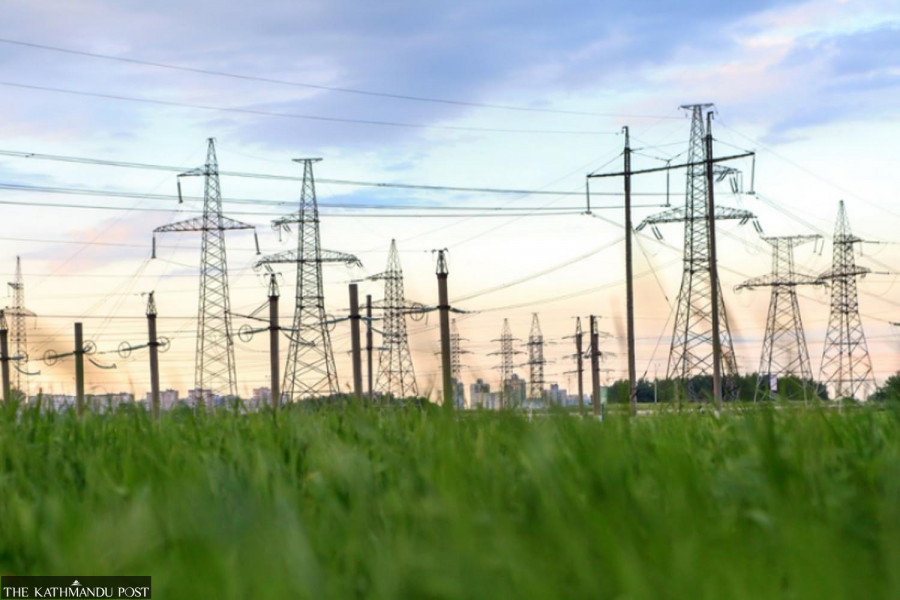National
Bangladesh has market for up to 4,000 MW power from Nepal, envoy says
Two countries are currently working on finalising the terms and conditions for the 40 MW power deal.
Prithvi Man Shrestha
Bangladesh is willing to buy more electricity from Nepal as the two countries work on finalising the 40 MW power deal, Bangladesh Ambassador to Nepal Salahuddin Noman Chowdhury said on Tuesday.
During a bilateral meeting in May last year, the two countries had agreed to make efforts to start exporting power to Bangladesh through India’s transmission infrastructure starting this wet season.
When Prime Minister Pushpa Kamal Dahal visited India in May and June last year, the southern neighbour had promised to facilitate the export of 40MW electricity to Bangladesh.
Currently, Nepal and Bangladesh are working on finalising the terms and conditions including tariff to make it happen. But Bangladeshi Ambassador Chowdhury said that Bangladesh has an appetite for more clean energy from Nepal.
Speaking at an interaction organised by Centre for Social Inclusion and Federalism, an agency working in the field of diplomacy, in Lalitpur on Tuesday, Ambassador Chowdhury said that Bangladesh’s existing generation of power has not been enough to meet the growing demand of power and Nepal could fill that gap.
“Currently, Bangladesh produces around 25,000 MW of electricity against the demands of over 30,000 MW,” said Chowdhury. “If Nepal gives us 3000MW–4,000MW of power right now, we can consume all the supply.”
But Nepal does not have the capacity to fulfil the energy gap that Bangladesh is facing because it can currently produce only around 3,000 MW. But the Himalayan country has a big plan for power generation in the next decade or so.
The Ministry of Energy, Water Resources and Irrigation is preparing a long-term plan to boost energy production and expand the market, with the target of producing over 28,000 MW of electricity by 2035.
“We have the target of exporting around 5,000 MW to Bangladesh by 2035, in addition to 10,000 MW to India in the next 10 years,” the recently retired energy secretary Dinesh Ghimire said in an interview with the Post in early January.
When Indian External Affairs Minister S. Jaishankar visited Nepal in early January, Nepal and India signed a long-term power trade agreement under which India promised to buy 10,000 MW from Nepal in 10 years.
And there is the opportunity for Nepal to export its hydroelectricity to Bangladesh to help it make a transition from fossil fuel based energy dependency to clean energy.
Bangladesh has set a target of covering 40 percent of its power generation with clean energy by 2041 and to import around 9000 MW under regional and sub-regional cooperation.
But India’s cooperation will be vital for energy cooperation between Nepal and Bangladesh because the South Asian giant lies between the two countries.
Ambassador Chowdhury said that dedicated transmission lines should be built between Nepal and Bangladesh for a large-scale trading of electricity.
But there is concern over whether India would be comfortable with a dedicated power line between Nepal and Bangladesh via India where the southern neighbour would not have much control.
“Nepal and Bangladesh should take India on board for building dedicated transmission lines,” he said. Planned trading of 40 MW electricity will be transmitted through India’s existing transmission infrastructure.
Nepal and Bangladesh have identified two potential routes for a dedicated transmission line between the two countries via India—Anarmari (Nepal) to Panchagarh (Bangladesh) and Anarmari (Nepal) to Thakurgaon (Bangladesh). The total length of the first route is 49km, of which a 24km section falls within the Indian territory. The second route has a 83km length, of which a 33km section falls in the Indian territory.
Ambassador Chowdhury said that Bangladesh, Bhutan, India and Nepal (BBIN) Sub-regional mechanism could be an ideal forum to discuss such matters.
During the interaction, the Bangladesh ambassador also said that Nepal and Bangladesh should sign power trade agreements with a guarantee clause for demand and supply of power. “There should be a guarantee clause under which Bangladesh cannot say no to the power supplied by Nepal in the future and Nepal also cannot say no to supplying power,” he said. “Otherwise, there will be uncertainty and unpredictability.”




 17.29°C Kathmandu
17.29°C Kathmandu















